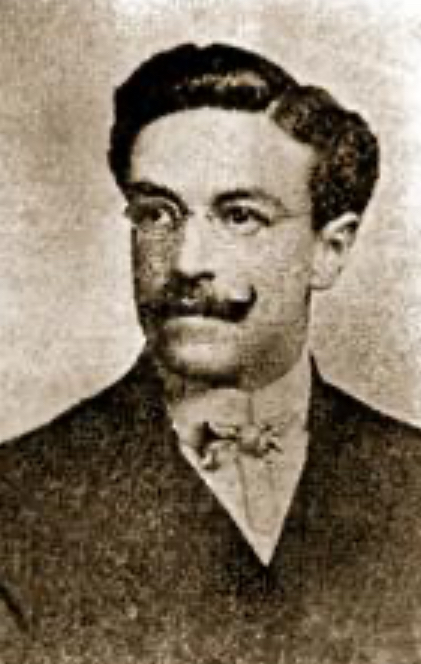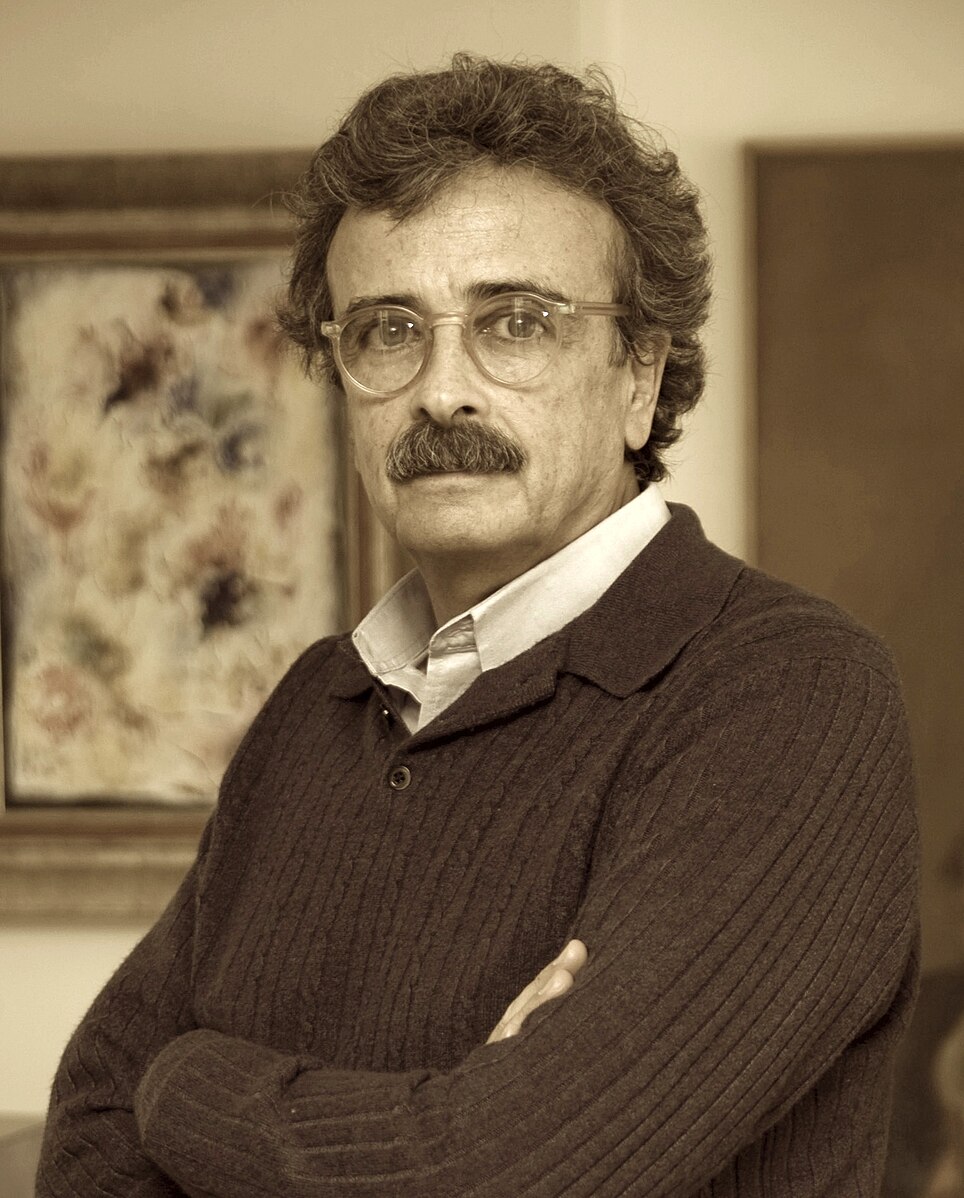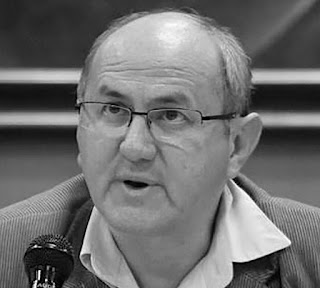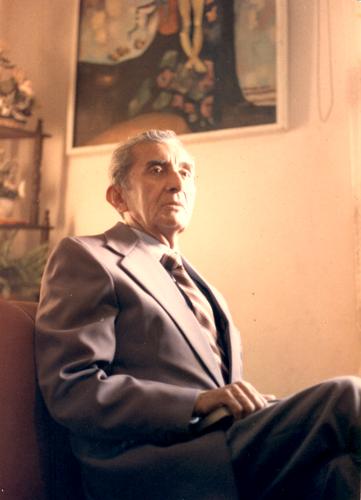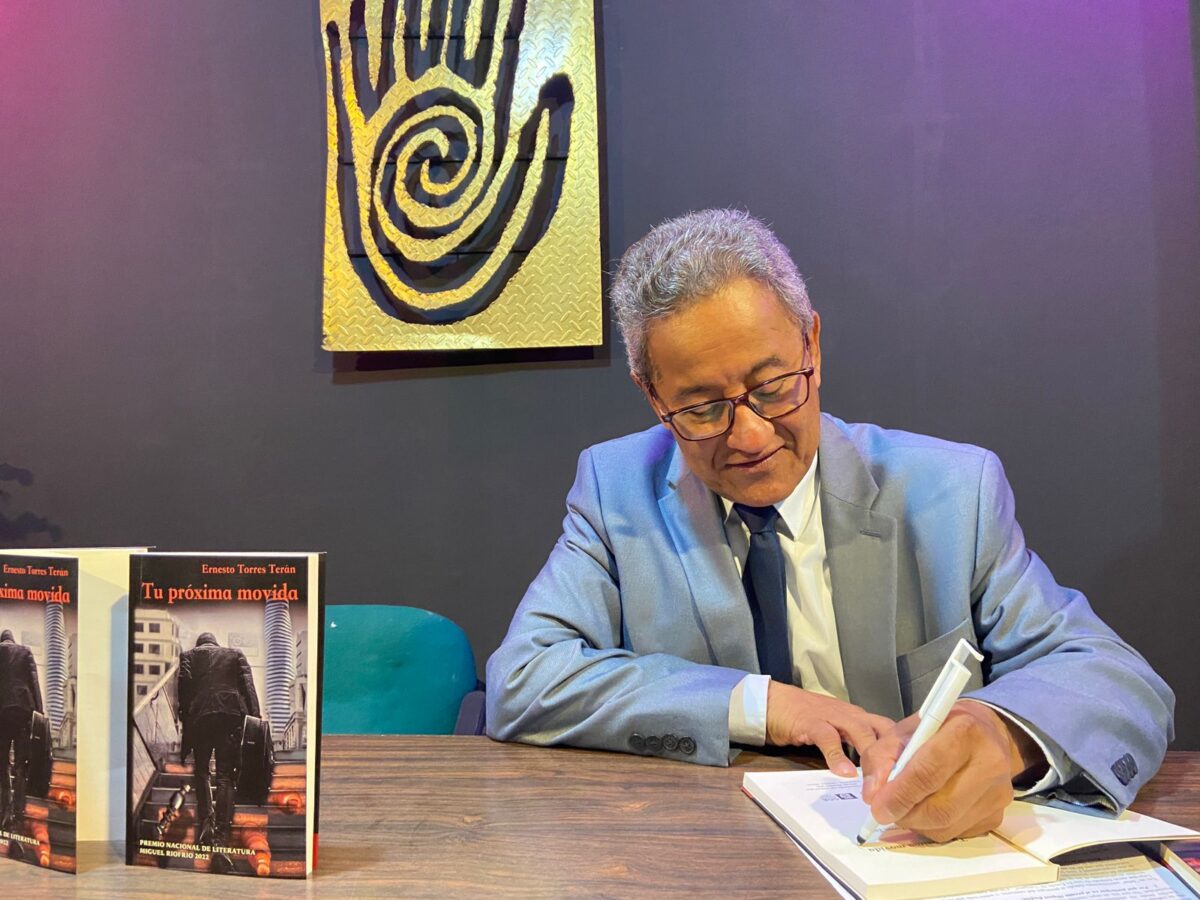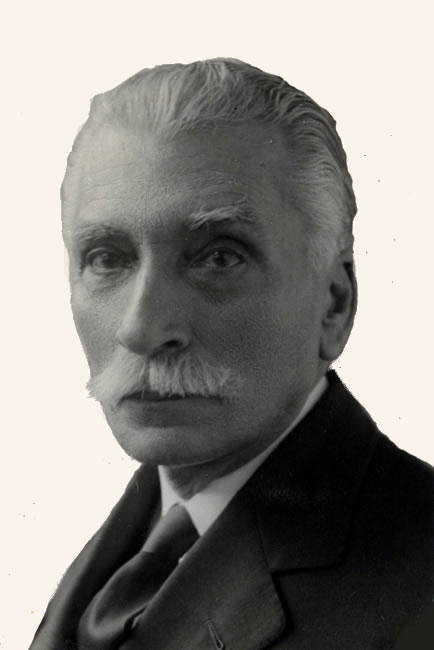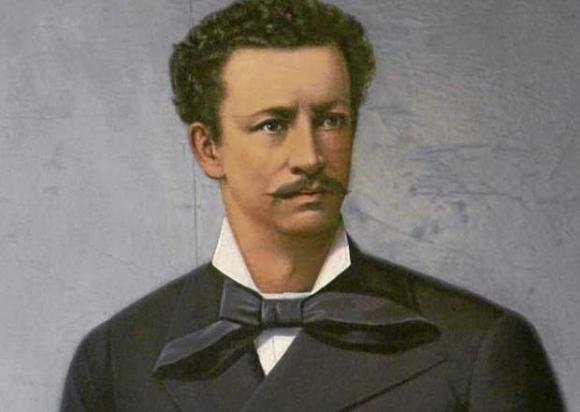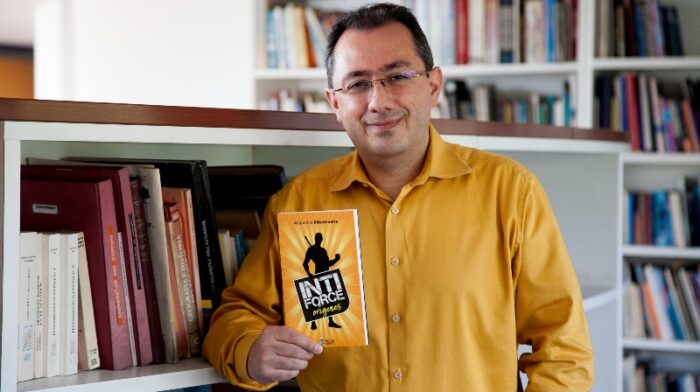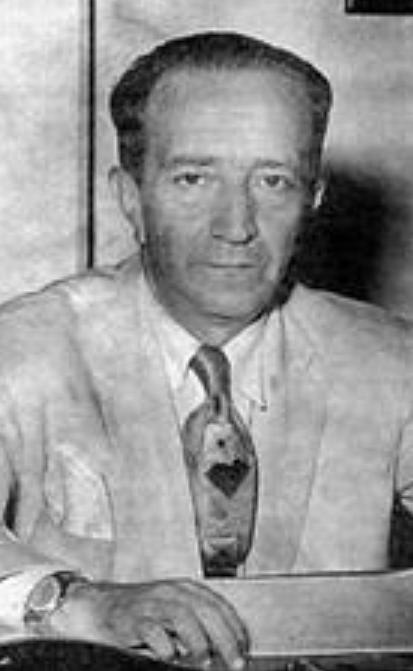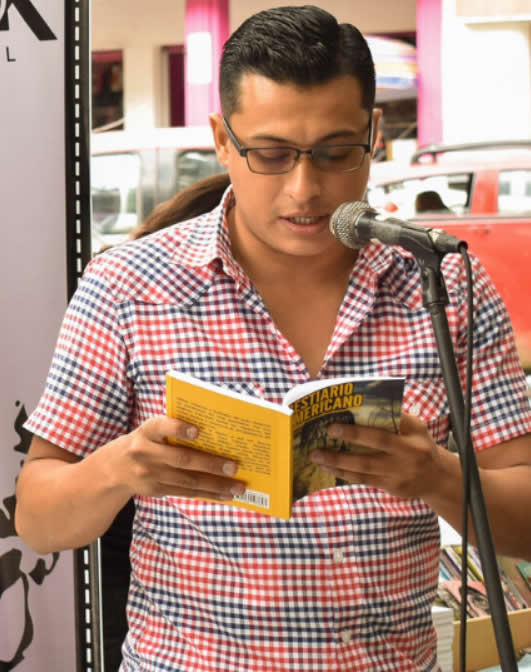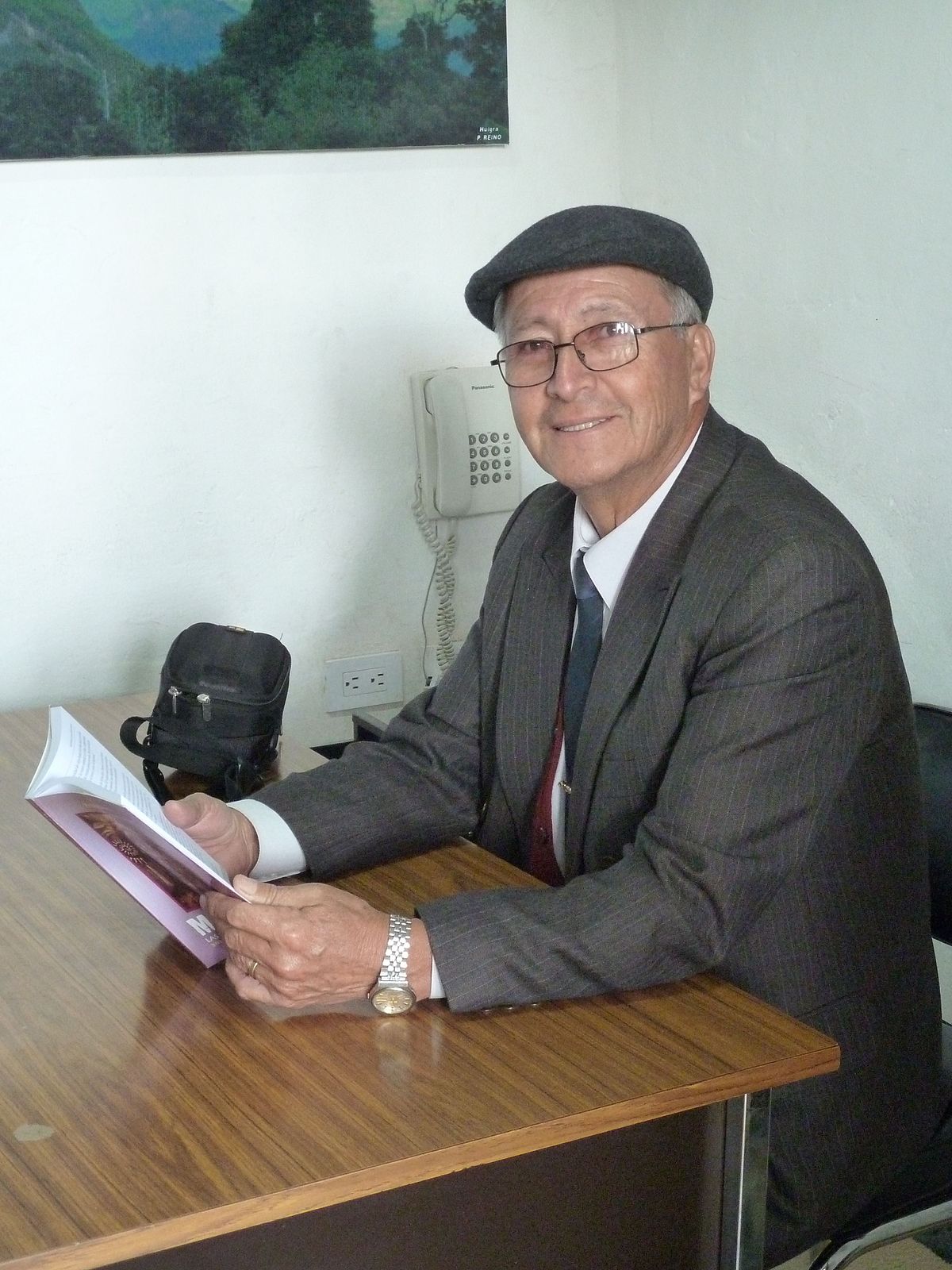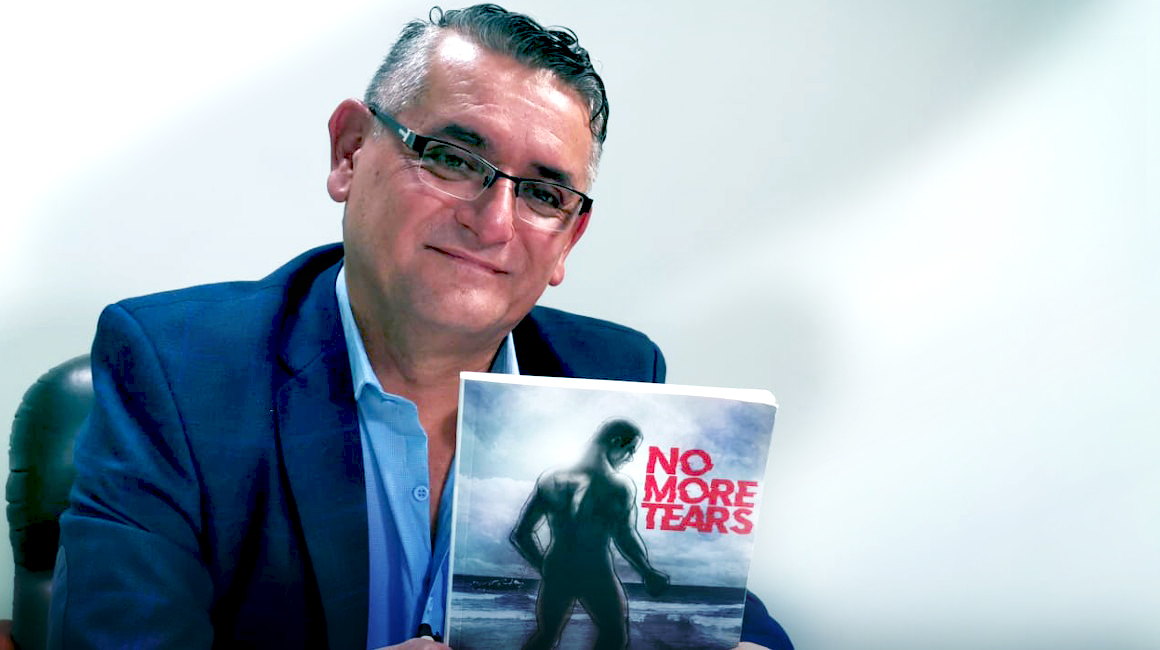Carlos Arturo León Romero (June 25, 1886, Riobamba – December 19, 1968, Quito) was an Ecuadorian lyricist, poet, playwright, and distinguished lawyer. Born into a family with a rich legal heritage, he carved a niche for himself not just in the courts but also on the cultural stage of Ecuador. His works spanned across various genres including drama, poetry, and novels, showcasing his versatility and deep engagement with the socio-political themes of his time. León Romero’s contribution to Ecuadorian literature and theater is profound, with plays such as “Reparación,” “El Recluta,” and “La Huérfana” earning critical acclaim and popular success. His establishment of the Teatro Daniel León further cemented his legacy as a patron of the arts, providing a platform for the performing arts in Ecuador.
Continue reading “Carlos Arturo León Romero”Category: Ecuadorian Novelists
Ecuadorian novelists, including stories, translations, bibliographies, biographies, interviews, articles, and much more. Novelists from Ecuador in one place.
Enrique Terán
Enrique Terán Vaca (Quito, 1887 – 1941) was an influential Ecuadorian musician, writer, and political activist. He honed his musical skills at the Royal Academy of Music in London, which played a pivotal role in his artistic development. A key member of the Ecuadorian Socialist Party, Terán actively engaged in the political scene of early 20th-century Ecuador. His literary legacy, highlighted by his notable novel ‘El cojo Navarrete’, delves into the effects of the Liberal Revolution in Ecuador. Terán’s multifaceted talents profoundly impacted Ecuador’s cultural and political spheres.
Continue reading “Enrique Terán”Diego Cornejo Menacho
Diego Cornejo Menacho (Quito, March 18, 1949) is a versatile Ecuadorian artist. He’s a writer, painter, and journalist. He has been a professor, columnist, and deputy director for newspapers, and he even directed regional news. Notably, he won the “Joaquín Gallegos Lara Prize” in 2008 for his novel “Miércoles y estiércoles” and received the “Gran Premio SIP-Libertad de Prensa” in 2013. He’s also been honored with the “Eduardo Kingman” Cultural Merit Decoration in 2014. Cornejo Menacho is a celebrated figure in Ecuadorian literature, with a collection of novels and journalistic works reflecting his deep connection to Ecuadorian culture.
Continue reading “Diego Cornejo Menacho”Raúl Serrano Sánchez
Raúl Serrano Sánchez (Arenillas, December 17, 1962) is a multifaceted figure in the literary world, known for his roles as a writer, literary critic, essayist, journalist, and university professor. He has made significant contributions to Ecuadorian literature, with several published works including short stories, a novel, and academic essays. His notable works include “Las mujeres están locas por mí” (a collection of short stories), and “Un pianista entre la niebla” (a novel). Sánchez’s literary prowess has earned him various accolades such as the Joaquín Gallegos Lara Prize in 1997, the National Angel F. Rojas Novel Prize in 2015, and the Manuela Sáenz Prize in 2014. He is an active academic, currently teaching at the Universidad Andina Simón Bolívar in Ecuador, and has contributed to various editorial boards and literary journals, showcasing his deep involvement in the literary scene. Sánchez’s work extends to editing and providing critical introductions for other writers’ works, emphasizing his comprehensive engagement in the literary field.
Continue reading “Raúl Serrano Sánchez”Jorge Vanegas Muñoz
Jorge Vanegas Muñoz (Guayaquil, September 6, 1923 – ibidem, April 6, 2003) the distinguished Ecuadorian poet, novelist, and journalist, left an enduring literary legacy that transcends borders. His notable works, including “Los sangrientos estambres,” “Esqueleto en abril,” and “Los escarabajos de un Virey,” stand as testaments to his poetic prowess and his commitment to the art of verse. In 1975, he received the prestigious National Poetry Contest Ismael Pérez Pazmiño award from the esteemed Guayaquil newspaper “El Universo.” Beyond his literary contributions, Jorge’s advocacy for peace, as seen through his participation in the Committee of Ecuadorian Writers for Peace and representation at the World Congress in Stockholm, reflects his dedication to using poetry as a force for harmony in a world marked by division. His life’s work continues to inspire and captivate readers, solidifying his place in Ecuador’s literary pantheon and beyond.
Continue reading “Jorge Vanegas Muñoz”Ernesto Torres Terán
Ernesto Torres Terán (Guayaquil, 1956) is an Ecuadorian medical doctor and prolific writer. He began his literary journey with the publication of the short story collection “Del puerto secreto” (1982), followed by “Y sin embargo se mueve” (1983) and “Territorio de fantasmas” (2006). His novels include notable works like “Asedios profanos,” for which he won the Onetti-Rulfo Prize in 1996, “Mínima gloria” (2012), and “Diecisiete ballenas en una pecera” (2014), earning him various awards. Recently, he won the Miguel Riofrío Prize for his latest novel “Tu próxima movida” (2022), further adding to his acclaim as a prominent Ecuadorian writer.
Continue reading “Ernesto Torres Terán”Alfredo Baquerizo Moreno
Alfredo Baquerizo Moreno (Guayaquil, September 28, 1859 – New York City, March 20, 1951) was a prominent Ecuadorian politician, author, and intellectual figure of the early 20th century. Baquerizo Moreno excelled in various fields throughout his life. He displayed his artistic talents through his poetry, influenced by Spanish author Gustavo Adolfo Bécquer, and his novels, which showcased his imaginative storytelling. Baquerizo Moreno’s career in politics was equally impressive, serving as the President of Ecuador from 1916 to 1920. During his presidency, he implemented progressive reforms and prioritized social justice, advocating for the abolition of debt imprisonment and improving labor conditions. Baquerizo Moreno’s lasting contributions to literature and his dedication to public service have secured his place in Ecuadorian history as a multifaceted and influential figure.
Continue reading “Alfredo Baquerizo Moreno”Juan Montalvo
Juan Montalvo, born Juan María Montalvo y Fiallos (Ambato, Ecuador, April 13, 1832 – Paris, France, January 17, 1889) was an influential Ecuadorian author, essayist, and formidable polemicist whose writings had a significant impact on the political landscape of his time. Known for his notable works such as “Las Catilinarias” (1880) and “Siete Tratados” (1882), Montalvo exhibited a fiery, unapologetic style, often challenging and criticizing the political status quo. As a political liberal, his beliefs were characterized by anti-clericalism and a fierce opposition to the authoritarian regimes of Gabriel García Moreno and Ignacio de Veintemilla. Despite facing exile multiple times, his penetrating critiques and commitment to democratic principles left a lasting legacy in Ecuador and beyond. Montalvo’s audacious spirit, combined with his eloquent prose, positioned him as a key figure in Latin American literature, while his life and works continue to symbolize the power of the written word as a tool for political change.
Continue reading “Juan Montalvo”José Paul Aguilar
José Paul Aguilar (Quito, 1965) is an Ecuadorian author, architect, and musician who began his writing career as a poet. He began writing at the age of fifteen, with his first poetry book published at twenty-two. Two of his notable works include “TŪTUM,” a compilation of poems and stories, and “Canciones de Otoño,” a collection of poems written since 1982. In 2023, he released his debut novel, “Un sol se me escondió” (A Sun Hid From Me). The novel received a warm reception and was showcased at the Madrid Book Fair. Interestingly, Aguilar is a descendent of Juan Montalvo, a renowned Latin American writer, which has been a significant source of inspiration for him.
Continue reading “José Paul Aguilar”Alejandro Ribadeneira
Alejandro Ribadeneira Tobar (Santiago, Chile, 1973) is an author, journalist, and editor born to an Ecuadorian father and a Chilean mother and has dual nationality. Since 2000, he has been part of Grupo El Comercio in Ecuador, where he has served as a macro editor, tasked with planning and editing journalistic content in areas such as Culture, Entertainment, Sports, Environment, History, among others, for both digital and print media. Educated at the Central University of Ecuador with a degree in Social Communication, Ribadeneira has penned a poetry book, several volumes of short stories, and novels, including “La frutilla mecánica,” “La máscara del padre,” “Calendario sin abril,” and “Inti-Force: Orígenes.” For 25 years, he has been a dedicated commentator and writer on the subject of soccer. He lives in Quito, Ecuador.
Continue reading “Alejandro Ribadeneira”Humberto Salvador
Humberto Salvador Guerra (Guayaquil, December 25, 1909 – Ibidem, January 17, 1982) was an Ecuadorian writer, editor, jurist, psychoanalyst, and literature professor. His early literary works associated him with the avant-garde movement in Ecuador, publishing notable works such as the novel “En la ciudad he perdido una novela…” (1930). However, he shifted towards social realism in his later works, with novels such as “Camarada” (1933), “Trabajadores” (1935) and “Noviembre” (1939). Known for his exploration of human psychology and his bold examination of societal issues, Salvador’s works displayed a remarkable depth of insight and a willingness to challenge traditional norms. His remarkable literary legacy includes 13 novels, 4 short story collections, 2 plays, and a groundbreaking doctoral thesis titled “Esquema sexual” that has gone though many editions.
Continue reading “Humberto Salvador”Julia Rendón Abrahamson
Julia Rendón Abrahamson (Quito, 1978) is an Ecuadorian writer. She has authored the novel “Lengua ajena” (2022), which explores profound themes of identity and belonging. In addition to her novel, Rendón Abrahamson has released two collections of short stories, including “Yeguas y terneros” (2021) and “La casa está muy grande” (2015). Her remarkable talent has garnered recognition, including being awarded the Montserrat Roig Grant for Literary Creation in 2021 by the City Hall of Barcelona, as part of UNESCO’s City of Literature program. Rendón Abrahamson’s educational background is just as impressive, with degrees from renowned institutions such as Boston College, Parsons School of Design, the National University of the Arts in Argentina, and the Argentine institute Casa de Letras. She also teaches creative writing workshops and founded Espacio Cultural PezPlátano in Quito.
Continue reading “Julia Rendón Abrahamson”Diego Maenza
Diego Maenza (Los Ríos, 1987) is an Ecuadorian writer. He is known for his works in poetry, fiction, and novels, which have been translated into several languages. In 2018, Maenza published “Caricreaturas,” a work that combines short stories and poetry. It was a finalist in the call for applications from the Ministry of Culture of Ecuador. The book was later translated into Italian by Alessandro Elias Ghetti and into English by Gastón Jofre Torres. Also in 2018, the National Headquarters of the House of Ecuadorian Culture published Maenza’s novel “Estructura de la plegaria” (Structure of Prayer). This work tackles sensitive topics such as pedophilia and abortion within the context of the intimate lives of Catholic clergy. The novel has been translated into Italian, English, French, Portuguese, German, and Russian. In 2019, Maenza released his poetry collection “Bestiario americano” (American Bestiary), which poetically condenses urban legends and myths from across the Americas. His second novel, “Todas las cartas de amor son ridículas” (All Love Letters Are Ridiculous), was published in 2020. It is a parody of romance novels written in an epistolary format and deals with themes of sexual violence.
Continue reading “Diego Maenza”Pedro Reino
Pedro Reino Garcés (Cevallos, February 9, 1951) is an Ecuadorian writer, historian, and journalist. He has published numerous works on the history of the Tungurahua Province and serves as the official chronicler of Ambato. Reino has written in various genres including poetry, short stories, novels, and essays. He has received recognition and awards for his literary contributions, and his books have been translated into languages such as Japanese, Korean, Serbian, and German and published internationally. Reino’s works delve into historical and cultural aspects of his region and reflect his passion for storytelling and preserving local heritage. He is a member of the Ecuadorian House of Culture, Tungurahua Branch. Since 2014, he has been a member of the National Academy of History.
Continue reading “Pedro Reino”Esteban Michelena
Esteban Michelena Ayala (Quito, 1963) is an Ecuadorian novelist, writer, and journalist. He is perhaps best known for his trilogy of novels, which includes “Atacames Tonic” (2002), “No more tears” (2018), and the critically acclaimed “El pasado no perdona” (2022) which embodies a genre defined by the author as “tragic realism.” Additionally, through his nonfiction writings, Michelena explores the realities of his country, addressing topics such as political corruption, social inequality, and the struggles faced by marginalized communities. As a journalist, Michelena has been honored with 12 national awards and recognitions, including the “Jorge Mantilla Ortega” award by the newspaper El Comercio on three occasions.
Continue reading “Esteban Michelena”
